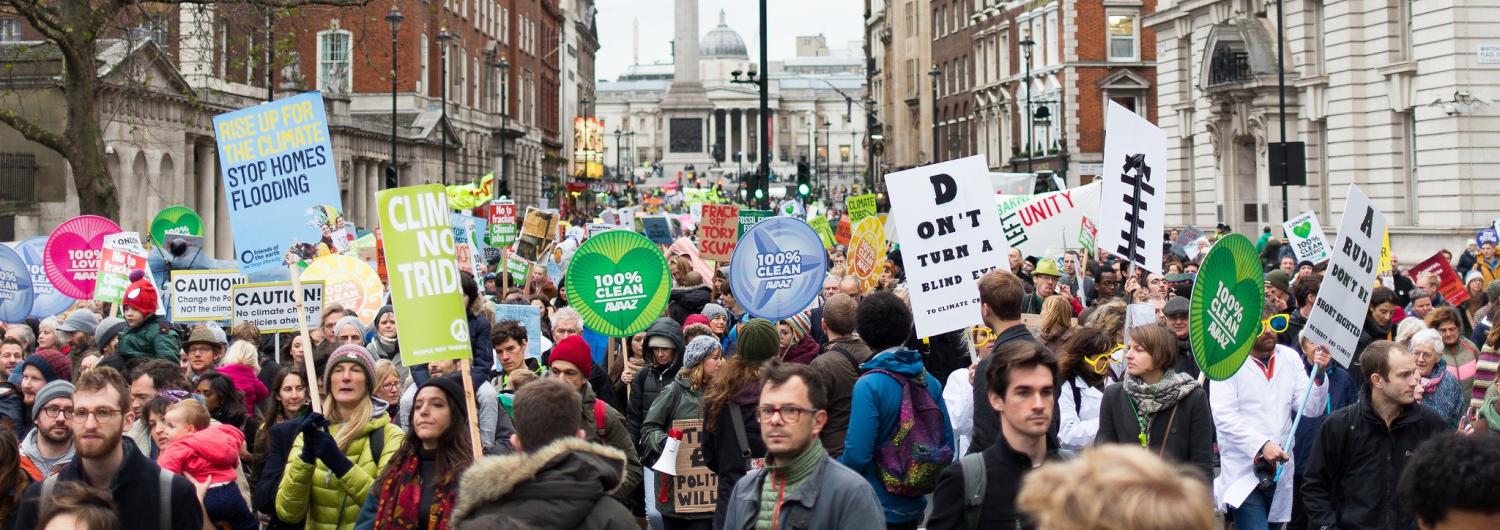Whether or not US President Donald Trump withdraws the United States from the Paris Agreement is less important than how other countries respond to his decision. By dismantling Obama’s Clean Power Plan, Trump has made it clear that his government would put little to no effort into reducing the nation's greenhouse gas emissions. His pre-election threats to pull out of Paris had already signalled that the US leadership provided under Obama wouldn’t last. So, whether he ends up in or outside the tent, the US government cannot be relied on in any way in the battle against climate change.
This in itself doesn’t doom the Paris Agreement. Yes, the US is less likely to hit its own emissions target of 28% off 2005 levels by 2025. But that target also depends on future Congresses and presidents, not to mention state legislatures that have driven most of the US progress on climate change to date anyway (and will continue doing so).
A bigger problem is the leadership gap - the economic and diplomatic heft that the Obama administration brought to bear on the rest of the world, including a pledge of $US3 billion to help developing countries reduce their emissions and adapt to climate impacts. One of those billions was delivered before Trump cancelled the rest.
Will other countries fill that leadership gap? There are promising signs, but several caveats. Let's start with the main reason for pessimism: no single other country can match the US’s influencing capabilities. The impact of George W Bush’s retreat from the Kyoto Protocol is contested, with some claiming that this mobilised other countries to try harder, and others noting that none of those countries thereafter increased their own emissions commitments.
However, Paris is not Kyoto. There is a much stronger foundation of support for Paris, coming from both key countries and major private sector actors. And the Agreement itself, designed to operate over many decades with a combination of national flexibility and international expectations, is more resilient to the recalcitrance of any single political leader.
More than 190 countries signed the Paris Agreement, and 147 have already ratified (in record time; the Agreement entered into force faster than any other multilateral agreement of recent decades).
Last week the rest of the G7 isolated the US by reaffirming their commitment in the forum’s communique. India and China, previously reluctant participants, are strong supporters - Chinese President Xi Jinping very pointedly declared at the World Economic Forum, three days before President Trump’s inauguration, that 'All signatories should stick to [the Paris Agreement] instead of walking away from it, as this is a responsibility we must assume for future generations.'
China is the world’s biggest emitter, biggest investor in clean energy, and biggest developing country, so if it also becomes the world’s biggest leader of climate action, the dynamics of international climate cooperation could shift in interesting - and potentially very positive - ways.
China and the EU are said to be developing a collaborative approach, replacing the US-China collaboration that took place under Obama.
Countries’ support comes from the recognition that decarbonisation is an opportunity, as well as an obligation. An economic self-interest in the transition, as well as fear of the costs of climate change, encourage strong action. For similar reasons, the private sector is much more engaged and supportive than ever before. Heads of the United States’ biggest companies have been pleading with President Trump to stay in the Agreement. An open letter to G7 and G20 leaders from over 280 investors with $17 trillion in assets under management calls for the Agreement to be progressed because 'we believe that the mitigation of climate change is essential for the safeguarding of our investments.'
With this level of consensus, the biggest risk of a Trump withdrawal - that it starts other countries down the same path - is unlikely to eventuate.
In one sense, Trump’s dithering has helped the climate cause. Other national leaders can feel more confident in contradicting the US now that they have seen President Trump in action for a few months.
Is the US likely to put much effort into encouraging other countries to follow its lead and exit the treaty? Is it likely to do this well? At this point, the answers appear to be no, and no.
Meanwhile, are the economic benefits of achieving the Paris Agreement goals still worth the effort? Are there commercial opportunities in the transition to a cleaner economy? And is there domestic upside from standing up to the Trump Administration? So far, countries’ answers to all three is yes.
